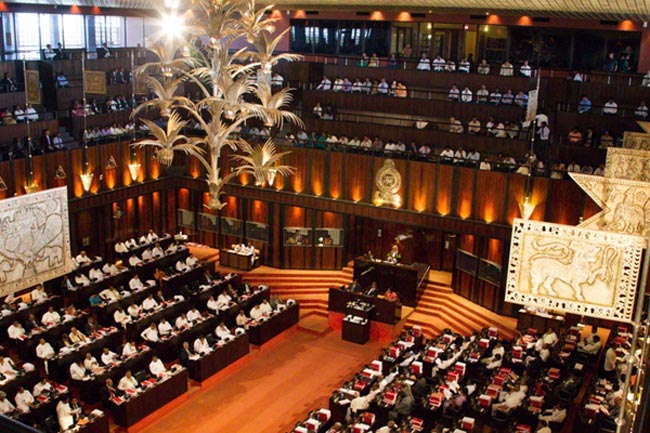Suggestion to ban burqas and religious or ethnic based political parties
February 20, 2020 11:07 pm
The Sectoral Oversight Committee on National Security has made suggestions to the Parliament to ban face-covering attire such as the burqa and to suspend the registration of political parties on ethnic and religious basis.
These suggestions were made in a special report presented to the Parliament yesterday (19) offering solutions to 14 controversial issues in the community following the Easter attacks. The report was presented to the parliament by the Chairman of the Committee MP Malith Jayatilake.
The report points out that currently many countries have banned the burqa and that the ISIS headquarters in Syria too banned the attire on September 5, 2019.
The report suggests that the police should have the authority to arrest any person who is willing to uncover their face at a public place when needed to establish identity.
The report has also made recommendations to the Election Commission to enact legislation to suspend the registration of political parties based on ethnic and religious grounds.
Accordingly, the report recommends banning registration of parties with racial or religious conflict in their relevant party names or constitutions; and if such a party currently exists, it should be converted into a non-racial or non-religious political party within a specified period of time (2-3 years).
Further, all students studying in Madras institutions should be absorbed into the normal school system under the Ministry of Education within a period of three years, the report suggests.
The Committee rejects the earlier proposal of the Madrasa institutions to be brought under the Ministry of Education and suggests that Madras schools should only function for the education of Moulavis after completing an education of GCE O/L and A/Ls.
The report also proposes the establishment of a special committee to regulate the Madras institutions under the Department of Muslim Religious and Cultural Affairs.
The report consists of a number of recommendations in the field of education, including the curriculum taught in all Islamic educational institutions being subjected to approval by the National Institute of Education, and the appointment of a recognized expert panel for the editing of the upcoming Islamic textbooks.
The report contains recommendations on 14 areas including formulating a National Security Policy addressing the challenges of possible future terrorist attacks, amending Immigration and Emigration Law in line with new national and international developments, monitoring of electronic/print/social media, amending the Muslim Marriage and Divorce Act, empowering the Muslim civil society, amending the Waqf Act, establishing and maintaining religious institutions and dhamma schools to ensure inter-religious harmony, establishment of a Ministry of Religious Affairs for all religions, and Halal certification.




